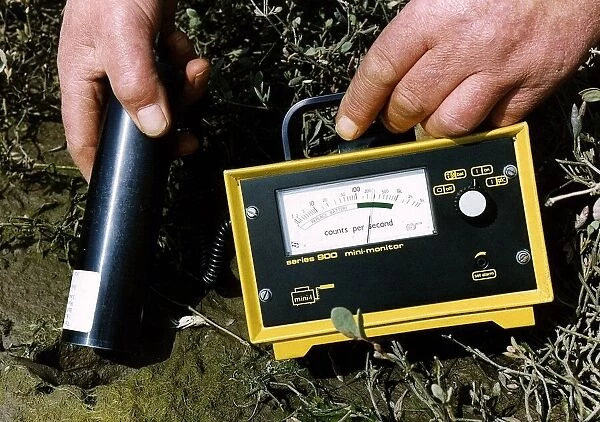Unlocking the Secrets of Radiation Measurement Instruments: How Do They Work?
Have you ever wondered how we measure radiation? It's a question that might not cross your mind every day, but it's essential to our safety and well-being. Radiation measurement instruments play a crucial role in various fields, from healthcare to nuclear power. In this article, we'll delve into the world of radiation measurement instruments, explaining their working principles in simple terms. We'll also share personal anecdotes, a few jokes, and provide actionable advice so you can better understand and appreciate these remarkable devices.

Understanding Radiation Measurement Instruments
Radiation measurement instruments are like the silent guardians of our safety. They help detect and quantify ionizing radiation, such as X-rays, gamma rays, and particles, which can be harmful to humans. These instruments ensure that radiation exposure stays within safe limits, whether in a hospital, at a nuclear power plant, or during a security screening at the airport.
How Do They Work?
Let's break it down into simple steps:
1. Geiger-Muller Counters:
You might have heard about Geiger counters in movies or TV shows. These handheld devices click when they detect radiation. The principle behind them is relatively simple. When radiation interacts with a gas inside the counter, it ionizes the gas, creating an electric current that produces those characteristic clicks. Each click represents a radiation event. So, the more clicks, the higher the radiation levels.
2. Scintillation Detectors:
Scintillation detectors use crystals or liquids that emit flashes of light when radiation interacts with them. A photodetector then measures the intensity of the light flashes, which correlates with the radiation dose. These detectors are more precise and can identify different types of radiation, making them valuable in medical imaging.
3. Ionization Chambers:
Ionization chambers measure the electrical charge generated when radiation ionizes the gas inside the chamber. This charge is directly proportional to the radiation dose. They're commonly used in radiation therapy to ensure accurate treatment delivery.
4. Dosimeters:
Dosimeters are like personal radiation diaries. They record the cumulative radiation exposure of individuals working in radiation-prone environments. When you wear one, it keeps a running tally of your radiation dose, ensuring you stay within safe limits.
Personal Anecdote:
I remember a visit to a hospital where a family friend was receiving radiation therapy for cancer. The dosimeter on the therapist's lab coat intrigued me. It's incredible how these instruments help save lives every day.
Why Does It Matter?
Understanding how radiation measurement instruments work is crucial for our safety and well-being. Whether you're a patient undergoing medical treatment, a worker in a nuclear facility, or a traveler passing through airport security, these instruments ensure that radiation exposure is kept at safe levels.
Conclusion:
In this journey through the world of radiation measurement instruments, we've shed light on their vital role in our lives. From Geiger counters to dosimeters, these devices protect us and keep us safe in various settings. The next time you encounter one of these instruments, you'll have a better appreciation for how they work and why they matter.
So, the next time you hear a Geiger counter click or see a dosimeter hanging from a healthcare professional's coat, remember the silent heroes behind these devices and the critical role they play in keeping us safe.
Ready to Take Action?
Stay Informed: Educate yourself about the radiation risks in your surroundings. Knowledge is your first line of defense.
Use Protective Gear: If you work in a radiation-prone environment, ensure you wear the necessary protective gear and monitor your radiation exposure.
Ask Questions: Don't hesitate to ask questions if you're a patient receiving radiation therapy. Understanding the process and safety measures will put your mind at ease.
Be Mindful During Travel: When you pass through airport security, be patient and cooperative. Radiation scanners are there for your safety, and they use minimal doses of radiation.
Now, armed with this knowledge, you're better prepared to navigate the world of radiation measurement instruments. Stay safe and stay curious! ?

Comments
0